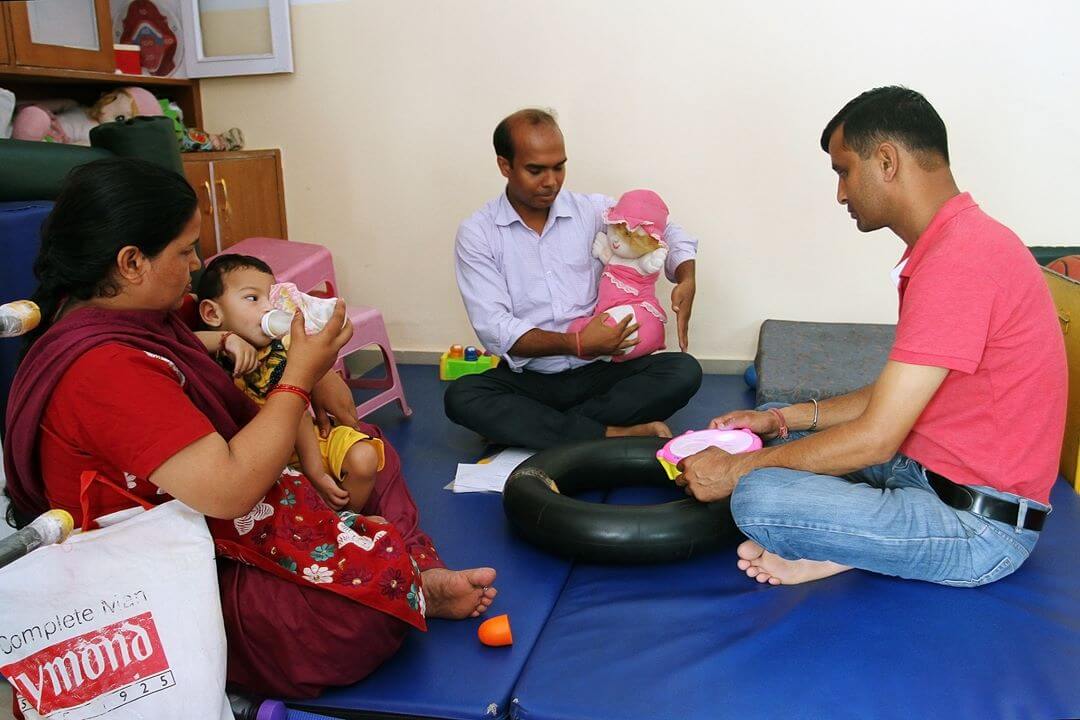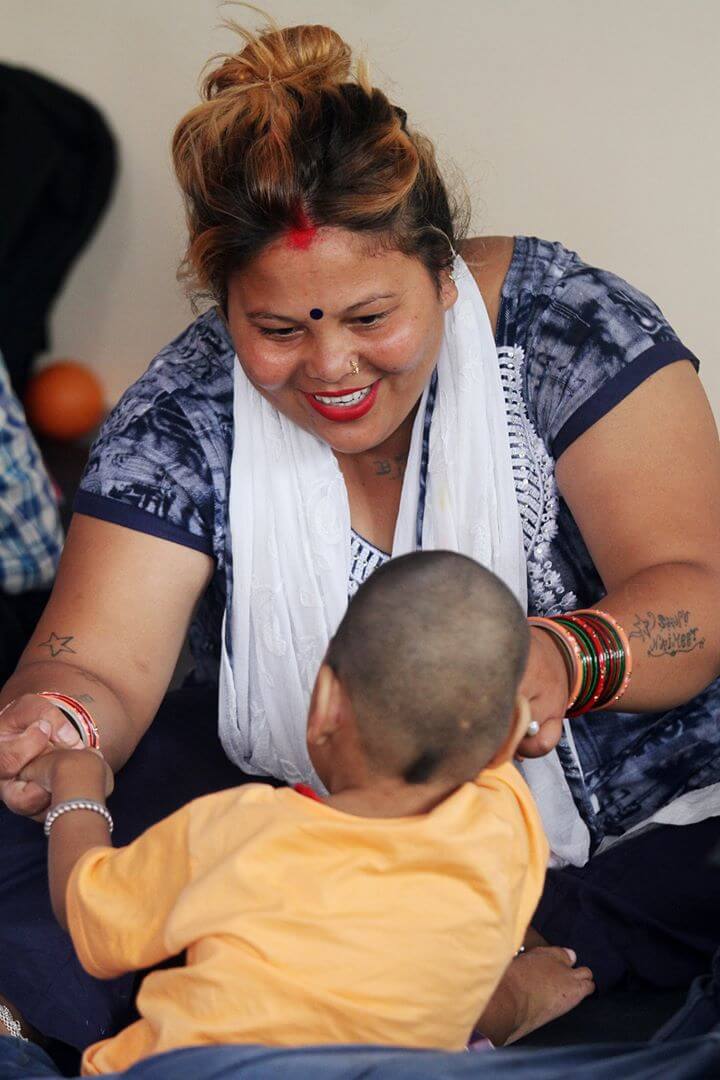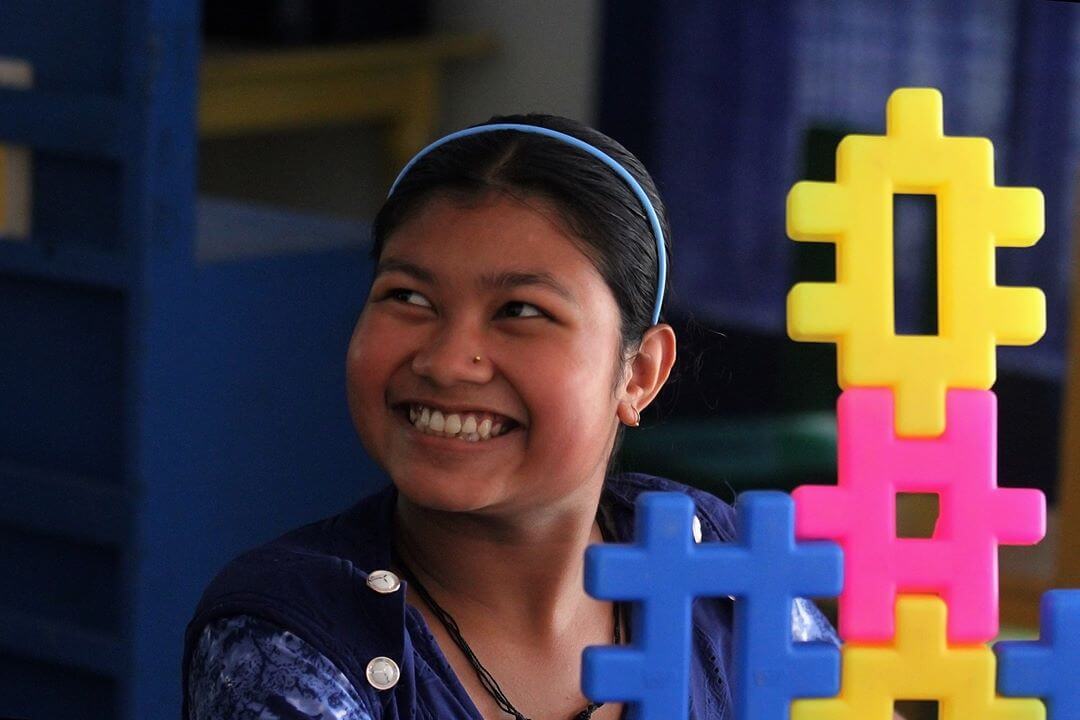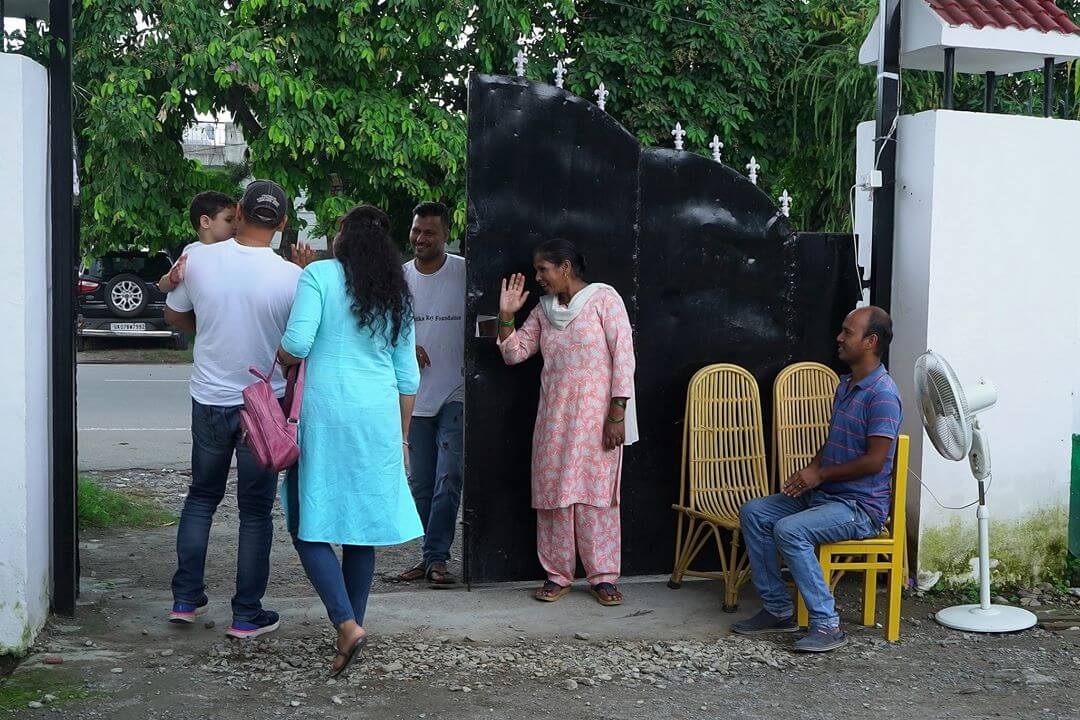This article is by Theo Demolder, a volunteer from Cambridge University. Theo approached us to draw on his experience in journalism and studying politics to “contribute to the work of the Foundation to push for the fair, dignified treatment of people with disabilities”.

The Latika Roy Foundation serves the whole of Uttarakhand. It is far from practical, though, for some parents across the state to bring their children to the various centres in Dehradun. Some, who are able, do choose to move to the city to have access to those daily services. For those who don’t, the Foundation is able to provide follow-up sessions — originally funded by sponsorship and now carried on at the organisation’s expense. On Friday 10th August, this was near Haridwar, attracting a number of families despite the heavy rain.
 It’s not glamorous — a small room with basic facilities. But it’s a valuable lifeline to parents every other month. And staff make it a fun, bright place with all sorts of toys laid out on mats across the room for both the children being helped and their brothers and sisters. Sometimes whole families make the journey together.
It’s not glamorous — a small room with basic facilities. But it’s a valuable lifeline to parents every other month. And staff make it a fun, bright place with all sorts of toys laid out on mats across the room for both the children being helped and their brothers and sisters. Sometimes whole families make the journey together.
Nisha is five and half years old. Dad brings her here because of the tightness and weakness in her legs which prevents her from walking properly; she moves on her tip toes and never stands up straight. He says he’s very happy with the help he’s received; physiotherapist Lakshmi examined Nisha and demonstrated exercises to improve posture and strength in her legs which could easily be replicated at home.
 Kehkashi has just turned seven but first came to the attention of the Foundation when she was examined at Gubbara at the age of one and found to have developmental delay. Her parents say they are grateful for the ease of bringing her here. And they have been able to teach her to sit up with the help of exercises they have learnt. They hope now that with the help of these follow-ups she will learn to walk and speak.
Kehkashi has just turned seven but first came to the attention of the Foundation when she was examined at Gubbara at the age of one and found to have developmental delay. Her parents say they are grateful for the ease of bringing her here. And they have been able to teach her to sit up with the help of exercises they have learnt. They hope now that with the help of these follow-ups she will learn to walk and speak.
Navneet is eight and has been coming from the age of three and a half, when her parents raised concern over her delayed speaking. She used to attend the Foundation’s Early Intervention Centre but has now integrated into mainstream education, gradually able to piece together a few words at a time with ongoing support. Today, Pushpa talks to her about a book of objects and a drawing she has done of her home and family.


